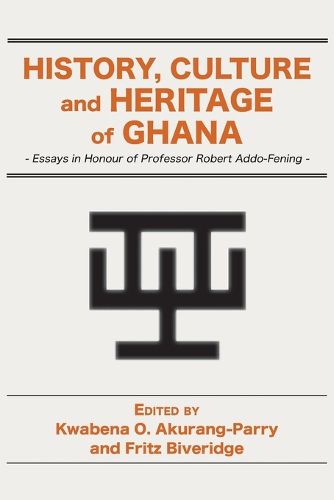Readings Newsletter
Become a Readings Member to make your shopping experience even easier.
Sign in or sign up for free!
You’re not far away from qualifying for FREE standard shipping within Australia
You’ve qualified for FREE standard shipping within Australia
The cart is loading…






This title is printed to order. This book may have been self-published. If so, we cannot guarantee the quality of the content. In the main most books will have gone through the editing process however some may not. We therefore suggest that you be aware of this before ordering this book. If in doubt check either the author or publisher’s details as we are unable to accept any returns unless they are faulty. Please contact us if you have any questions.
"The illuminating essays in this volume which highlight the complex and multifaceted nature of the Ghanaian past and present are a fitting and splendid homage to Professor Robert Addo-Fening, one the doyens of Ghanaian and African history, culture and heritage."
ISMAIL RASHID, Professor of History and Former Director of African Studies, Vassar College, Poughkeepsie, New York
"The diverse contributions in this impressive volume reflect Professor Robert Addo-Fening's energy and multiple interests. At home in the world of history, archaeology, sociology, religions, and heritage studies, this publication of honour reflects those ranges in the formidability of his scholarship and the fidelity to African organic institutions."
TOYIN FALOLA, Professor of History, University Distinguished Teaching Professor, Jacob and Frances Sanger Mossier Chair in the Humanities, University of Texas, Austin
This book is an embroidered history, culture, and heritage of Ghana covering the precolonial epoch, colonial period, and post-colonial era with a sheer breadth of inquiry in honour of an evergreen Ghanaian historian, Professor Robert Addo-Fening, who was instrumental in training a generation of Ghanaian historians. The thematic scope, linguistic panache, epistemological rendering, and structural relevance make the book accessible to the general public and the academy. It will meet the needs of students of historical, heritage, transnational, ethnic, sociological, religious and epidemiological studies, among others. Undoubtedly, this fascinating book is welcome addition to the history of Ghana.
$9.00 standard shipping within Australia
FREE standard shipping within Australia for orders over $100.00
Express & International shipping calculated at checkout
This title is printed to order. This book may have been self-published. If so, we cannot guarantee the quality of the content. In the main most books will have gone through the editing process however some may not. We therefore suggest that you be aware of this before ordering this book. If in doubt check either the author or publisher’s details as we are unable to accept any returns unless they are faulty. Please contact us if you have any questions.
"The illuminating essays in this volume which highlight the complex and multifaceted nature of the Ghanaian past and present are a fitting and splendid homage to Professor Robert Addo-Fening, one the doyens of Ghanaian and African history, culture and heritage."
ISMAIL RASHID, Professor of History and Former Director of African Studies, Vassar College, Poughkeepsie, New York
"The diverse contributions in this impressive volume reflect Professor Robert Addo-Fening's energy and multiple interests. At home in the world of history, archaeology, sociology, religions, and heritage studies, this publication of honour reflects those ranges in the formidability of his scholarship and the fidelity to African organic institutions."
TOYIN FALOLA, Professor of History, University Distinguished Teaching Professor, Jacob and Frances Sanger Mossier Chair in the Humanities, University of Texas, Austin
This book is an embroidered history, culture, and heritage of Ghana covering the precolonial epoch, colonial period, and post-colonial era with a sheer breadth of inquiry in honour of an evergreen Ghanaian historian, Professor Robert Addo-Fening, who was instrumental in training a generation of Ghanaian historians. The thematic scope, linguistic panache, epistemological rendering, and structural relevance make the book accessible to the general public and the academy. It will meet the needs of students of historical, heritage, transnational, ethnic, sociological, religious and epidemiological studies, among others. Undoubtedly, this fascinating book is welcome addition to the history of Ghana.